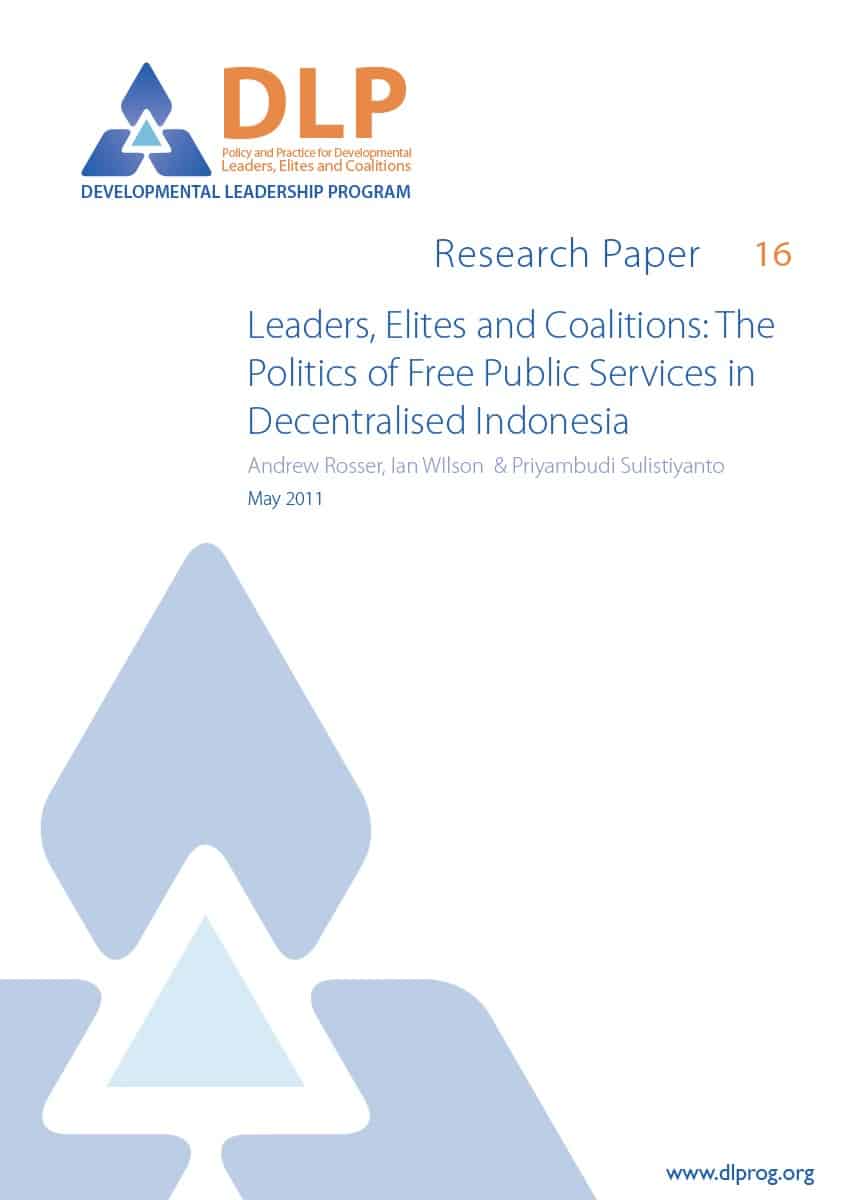Since the implementation of decentralisation in Indonesia in 2001, district governments—which under the country’s decentralisation laws are assigned primary responsibility for health and education policy—have varied considerably in their response to the issue of user fees for basic education and health services. Many have done little to support the provision of free public services in their districts while a small number have adopted well-funded programs to support free basic education and health.
The purpose of this report is to explain this cross-district variation and assess the policy implications for donors and other development actors interested in improving citizens’ access to basic education and health services. We argue that a key determinant of district governments’ varying responses to the issue of user fees has been the nature of district heads’ strategies for maintaining and advancing their political careers.
Where district heads have pursued strategies of ‘political entrepreneurship’—that is, where they have sought to develop a popular base among the poor—and become dependent upon their electoral support to remain in power, district governments have been more likely to promote free public services than where political leaders have focused on consolidating patronage networks. At the same time, we suggest that these strategies have in turn reflected the incentives created by district head’s respective personal networks, alliances, and constituencies.
In policy terms, we conclude that donors and other development actors need to find ways of enhancing the scope for political entrepreneurship at the local level, that they can make a contribution in this respect by supporting and collaborating with anticorruption institutions and promoting awareness of successful instances of political entrepreneurship, and that they should draw on political analysis in determining whether to engage in particular countries or, within countries, in particular regions.
Download the summary below or see the full paper.









